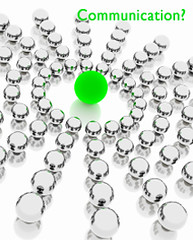 Microsoft is buying more than Skype for $9 billion. It's also buying a headache of sorts, one that it didn't make but will eventually have to face as a public relations road bump or two or worse.
Microsoft is buying more than Skype for $9 billion. It's also buying a headache of sorts, one that it didn't make but will eventually have to face as a public relations road bump or two or worse.The initial rub up with a story penned by former employee Yee Lee, who describes Silver Lake as a bunch of rat bastards, is only one piece of the problem.
In case you missed it, Lee says he's been cheated because his contract gave Silver Lake the right to “repurchase” any vested shares for anyone who leaves the company voluntarily or is terminated with cause. It renders the options relatively worthless. Business Insider Henry Blodget provides a different take on the case.
On its own, this would be a little bit of trouble, but not much. Many people would say Lee was certainly silly to "assume" his contract was of the boiler plate variety. Other people would say it seems odd that "vested" options aren't really vested at all. And everyone would forget about it in about seven weeks.
But the Lee story is only one among several that smack of stock and contract monkey business with Silver Lake. There was also the decision to let some senior executives go, meaning that they aren't likely to get as much as those who stay on through the transition. And just today, Reuters revealed there may be two more oddities ahead.
Microsoft may not look good in the months to come.
While Andrea Petrou speculates that the executives were sacked at Skype early to make Microsoft look good, it really won't work that way given those other stories are coming to light. "Skype employees get screwed" is a sticky message.
The reason it will become Microsoft's trouble is because buyers almost always host their own round of housecleaning after an acquisition. It only makes sense. Not every good fit for Skype will be a good fit for Microsoft.
 But with the complex web of credibility gaps created by Silver Lake, Microsoft will look bad no matter what it does. Even if you dismiss the early firings, the claw back on people like Lee, the other employees who were let go for cause (whatever that cause may be), and what Reuters called a special Cayman partnership created "to avoid the possible application of employee-favorable laws in California and Luxembourg," the collective bad message — employees get screwed — sticks better than any number of complex defenses being forwarded by Silver Lake.
But with the complex web of credibility gaps created by Silver Lake, Microsoft will look bad no matter what it does. Even if you dismiss the early firings, the claw back on people like Lee, the other employees who were let go for cause (whatever that cause may be), and what Reuters called a special Cayman partnership created "to avoid the possible application of employee-favorable laws in California and Luxembourg," the collective bad message — employees get screwed — sticks better than any number of complex defenses being forwarded by Silver Lake.So, when Microsoft inherits Skype and starts calling the shots, any missteps will read as Skype employees get screwed again. And again. And again. (As applicable.) Given Microsoft already has a poor track record on mergers and acquisitions, it's likely there will be problems. And sentiment suggests most Skype users are less than excited.
Many of them expect Microsoft to destroy what is working. And Skype employees are likely feeling uncertain about the future.
The only silver lining is that Microsoft intends to keep Skype as its own operational division. But anyone following these events have to wonder how long that will that last. They also have to wonder how long it will take to forget that Silver Lake set these problems in motion and placed all the blame on Microsoft, for better or worse, deserved or undeserved. Case study ahead.




















